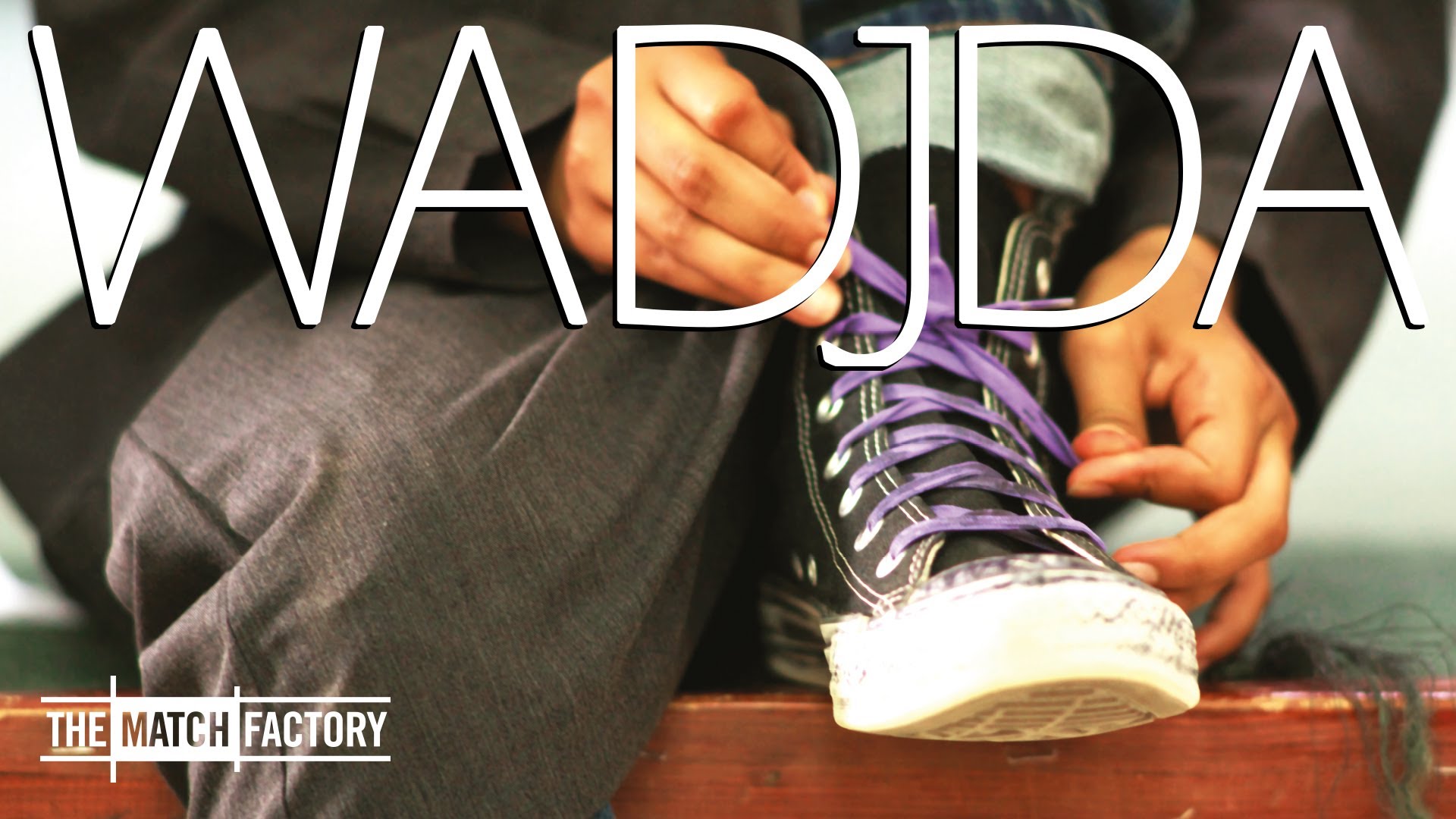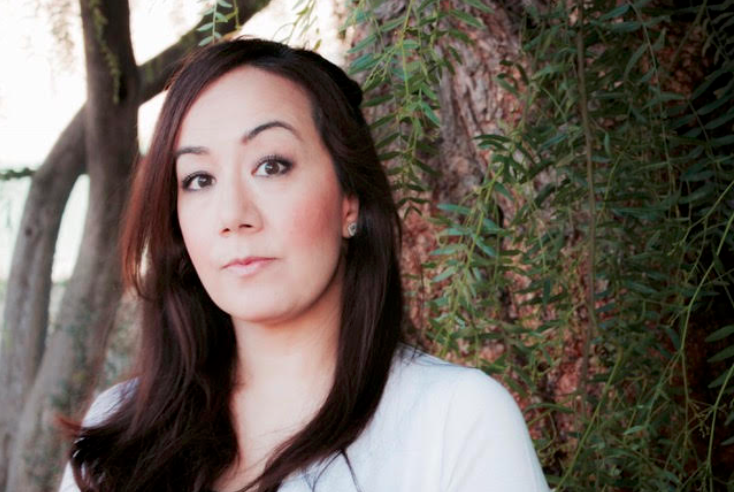Malala Yousafzai gave a stirring speech at the U.N. last Friday, her first major appearance since being shot in the head by the Pakistani Taliban in October for her efforts to promote girls’ education in the country.
Yousafzai was celebrated July 12, her 16th birthday, which the U.N. proclaimed Malala Day. “By targeting Malala, extremists showed what they feared the most: a girl with a book, ” U.N. Secretary-General Ban Ki-moon said in a speech marking the event.
“They thought that bullets would silence us, but they failed,” said Yousafzai, wearing a shawl that once belonged to Benazir Bhutto, Pakistan’s first female prime minister, who was assassinated in 2007. “There was a time when women’s activists asked men to stand up for women’s rights. This time we will do it for ourselves.”
In honor of Yousafzai, the team from The I Files, The Center for Investigative Reporting’s investigative news channel, compiled a list of 10 other kick-ass women (or groups of women) you might not have heard about who are making an impact in the Muslim world. They are rebels, artists, educators, filmmakers, activists and pariahs who spark change, controversy and even outrage. Some are working on a large stage, while others make a mark with smaller acts of defiance.
Of course, this list is just the beginning and is in no way definitive. Tweet us @ifiles with your thoughts.
1. HAIFAA AL-MANSOUR
Haifaa al-Mansour faced some unusual obstacles while directing “Wadjda,” a coming-of-age story about a young girl who plots to own a bicycle despite a ban on women riding in public. The film is the first to be shot entirely on Saudi soil, and, due to restrictions on men and women working together, al-Mansour often had to direct the actors and crew remotely with a walkie-talkie. Despite these challenges, Saudi Arabia’s first female director has said her country is becoming “more tolerant and more accepting.” However, the film will be available in Saudi Arabia only on DVD or television, as public cinemas generally are banned.
2. SYRIA’S FEMALE REBEL FIGHTERS
As the war in Syria becomes more violent and intransigent, a growing number of religious women are taking an active role in the fighting, breaking down cultural barriers that once kept them from the battlefield. As many as 5,000 female fighters are working with rebel military forces, according to the Syrian Observatory for Human Rights, a group that opposes the regime. GlobalPost’s Tracey Shelton profiles one small all-female Islamic unit in Aleppo, commanded by a mother of 10 who now fights alongside some of her children. “We are fighting for our honor and for our religion and for revenge,” the woman says.
3. RAHA MOHARRAK
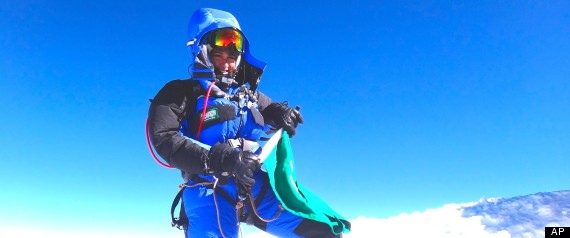
In May, 27-year-old graphic designer Raha Moharrak became the first Saudi woman to climb to the top of Mount Everest. Moharrak was the only woman in a four-person team that called themselves “Arabs with Altitude.” “I don’t care about being the first,” she told Al-Jazeera, “so long as it inspires someone else to be the second.”
4. DANA BAKDOUNIS
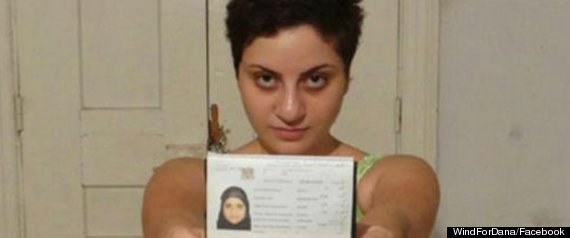
A 21-year-old Syrian woman caused a minor sensation in November when she posted a picture of herself on Facebook without the veil she had worn most of her life. Looking right into the camera, Dana Bakdounis holds her passport with a note saying, “I’m with the uprising of women in the Arab world because for 20 years, I wasn’t allowed to feel the wind in my hair and (on) my body.” The post was briefly removed after Bakdounis received a flood of comments and threats, though Facebook later apologized and said this was an error. Twitter users created the hashtag #windtoDana in support.
5. RIHAM SAID
Egyptian journalist Riham Said dramatically turned the tables on a guest in a show that aired on Al Nahar TV earlier this year. During the program, Sheikh Yousuf Badri balked at talking to her on camera because she was not wearing a veil, though he apparently had no reservations chatting with her when the cameras weren’t rolling. Said lambasted his hypocrisy: “This is the kind of person who sues TV channels, attacks the media and puts on a show for the viewers. It is very unfortunate that people like this peddle our religion. I’m the one leaving, not you.”
6. EGYPTIAN WOMEN FIGHT SEXUAL HARASSMENT
Incidents of sexual assault in Egypt have skyrocketed in the past year, reaching a record high during the protests that led to the June ouster of President Mohammed Morsi. Many women fear speaking out because of social stigma, the small chance that perpetrators actually will be prosecuted and a crackdown by security forces on women who have spoken out in the past. But women are banding together in a number of anti-harassment organizations to intervene on the ground, assist victims and spread the word about this under-reported epidemic. In this video from Human Rights Watch, victims of sexual assault appear on camera to break the taboo against speaking out and confront an ingrained culture of blaming the victims.
7. AMINA TYLER AND HER CRITICS
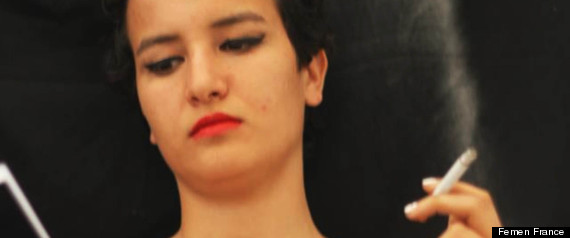
Tunisian Amina Tyler made headlines earlier this year when she posted a topless photo of herself online with the messages “My body is my own” and “Fuck your morals” written on her chest. Tyler considers herself part of FEMEN, a mostly European “sextremist” group that uses nudity and confrontation to push for women’s rights. When 19-year-old Tyler was held in seclusion by her family and later detained by Tunisian authorities, European FEMEN activists called for an international “Topless Jihad Day” and protested her detention by posing topless in front of a Tunisian court.
However, many Muslim women strongly resented what they saw as a patronizing, offensive and noninclusive campaign. In response, Muslim Women Against FEMEN organized a counter-campaign calling for a Muslimah Pride Day, posing (clothed) with slogans such as “Nudity does not represent me” and “I do not need liberating.”
8. PARKOUR PRACTICIONERS IN IRAN
It’s not easy to bounce off a tree into a back flip while wearing a headscarf and loose trousers, but that’s just one of the challenges for Iranian women who practice the sport of parkour. Apparently, parkour’s popularity is soaring among girls in Iran, despite the somewhat challenging dress code and limited access women have to public spaces. The sport’s popularity might be due partly to the fact that women’s participation in other sports is so strictly regulated and segregated. One practitioner is quoted by French TV saying, “This sport is all about speed – unlike the lives of young Iranian women, which sometimes feel like they’re frozen.” The video above was posted on the Iranian Parkour Girls Facebook page.
9. TAWAKKOL KARMAN
Known as the “Iron Woman” and the “Mother of the Revolution,” Tawakkol Karman became the international public face of Yemen’s Arab Spring uprising. After weathering multiple arrests and assassination attempts, Karman was named a co-recipient of the Nobel Peace Prize for her nonviolent work advocating for women’s rights and democratic reform. She was the first Arab woman to receive the honor and the youngest laureate to date.
“I would like the world to know that Yemeni women are strong, and if empowered, they can achieve,” she said in an interview shortly after hearing the news. “The world needs to look beyond stereotypes and dress code. In our hearts, we are just human beings who want to live a dignified life. Is that too much to ask for?”
10. HUMAIRA BACHAL
Like Malala Yousafzai, Humaira Bachal fights to educate girls in Pakistan, a country where 26 percent of women are literate. She combats ingrained cultural prejudices and an all-too-understandable fear of the militants who have attacked more than 600 schools over the last six years. In “Humaira the Dreamcatcher,” a short documentary about her work, Bachal recalls a dramatic and seminal moment in her life when her father tried to prevent her from going to school and her mother defied him, getting beaten in the process.
The film was directed by Sharmeen Obaid-Chinoy, who should herself be included in this list. Obaid-Chinoy was Pakistan’s first Oscar winner, garnering her award last year for her short documentary “Saving Face,” which chronicles the lives of acid attack survivors as they try to bring their assailants to justice.
Amanda Pike is the producer for The I Files, a project of The Center for Investigative Reporting. The I Files selects and showcases the best investigative videos from around the Web and across the world. Major contributors include CIR, The New York Times, BBC, ABC, Al Jazeera, Vice TV and the Investigative News Network. You can follow Amanda on Twitter: @AmandaHPike. Learn more about The I Files: youtube.com/ifiles.
This article was originally published on The Huffington Post.
















